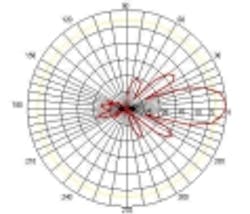BAE Systems to develop electronic warfare machine learning to jam enemy adaptive communications automatically
ARLINGTON, Va., 2 Jan. 2011.Electronic warfare experts at the BAE Systems National Security Solutions segment in Burlington, Mass., will develop electronic warfare machine learning to jam enemy adaptive communications automatically under terms of an $8.4 million research contract announced last week from the U.S. Defense Advanced Research Projects Agency (DARPA) in Arlington, Va.
BAE Systems won the contract for the DARPA Behavioral Learning for Adaptive Electronic Warfare (BLADE) program, which seeks to develop technology to defeat adaptive wireless communications threats. BAE Systems will develop software algorithms and techniques that will enable U.S. electronic warfare systems to learn how to jam new radio frequency threats automatically.
The DARPA BLADE program seeks to push the bounds of machine learning -- a kind of artificial intelligence -- to counter enemy threats from wireless adaptive communications such as battlefield radios, command and control networks, and RF triggers like cell phones used to detonate improvised explosive devices (IEDs). Adaptive communications automatically adjusts to conditions that degrade its performance, such as environmental conditions, or from intentional or inadvertent signals jamming.
DARPA issued a broad agency announcement (DARPA-BAA-10-79) last July for the BLADE program, which will detect and characterize new RF threat, learn to jam the new threat, and assess the effectiveness of RF jamming in the field.
The BLADE system that BAE Systems will develop should be able to operate as one node or as a network of distributed BLADE nodes, with performance improving as nodes are added to the network. The program is in three parts -- system and its algorithms, systems that operate in real time, and a networked prototype system. Agency officials may award several additional initial contracts for BLADE program research.
BAE Systems experts will do their BLADE research in Burlington, Mass.; Nashua, N.H.; and Piscataway, N.J., and should be finished by May 2012. For more information contact BAE Systems National Security Solutions online at www.baesystems.com, or DARPA at www.darpa.mil.
